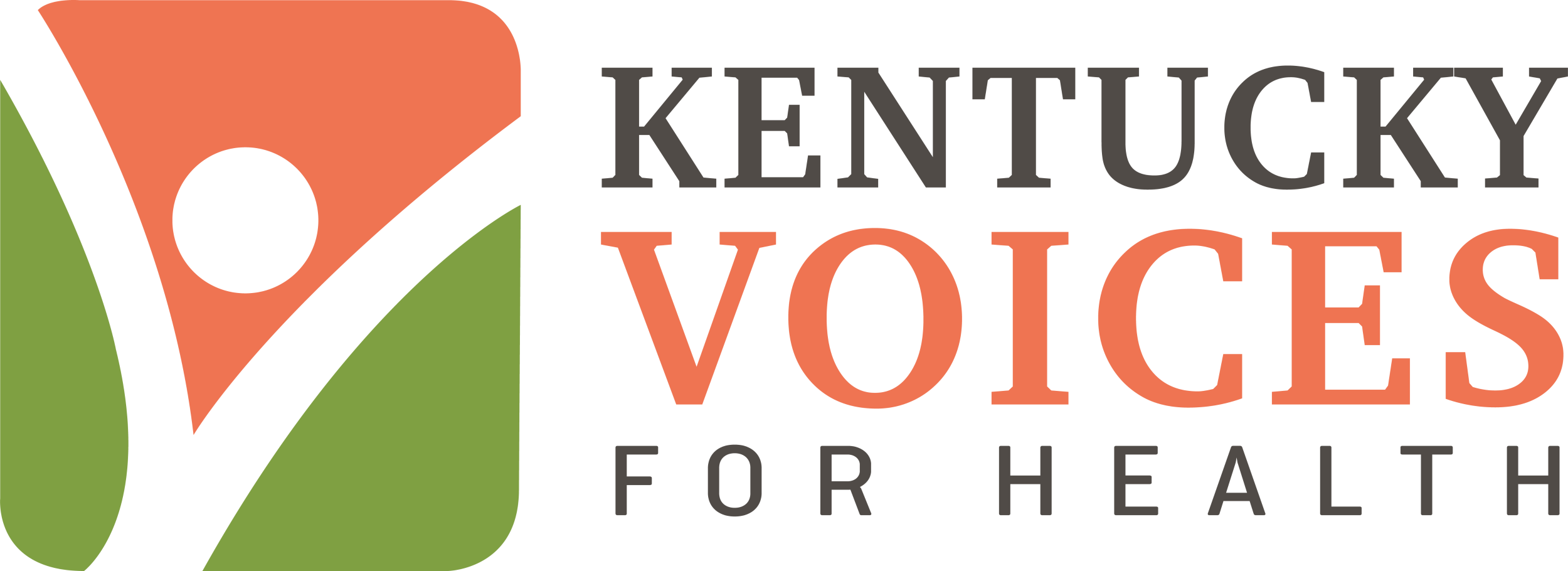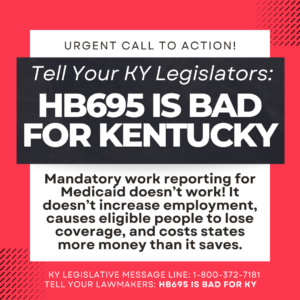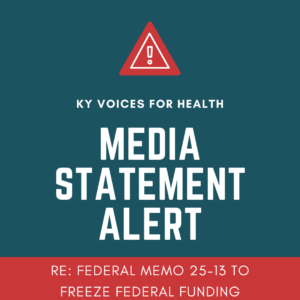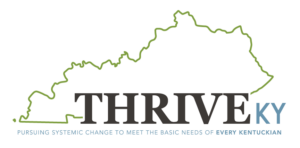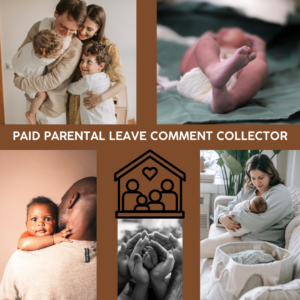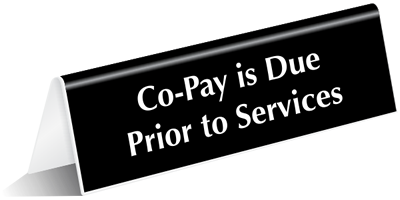
Mandatory Medicaid copays have been in effect since the beginning of 2019. From the time the state made its intention known, advocates across the state voiced concerns and cited research showing this policy would block access to care for many Medicaid beneficiaries and cost more in the long run. We have done this through a letter to the agency prior to the new year, and twice during public comment periods on the regulations. As the regulation moves closer to its final form, now is a good time to review where the copay policy stands and the issues still faced by Kentuckians covered by Medicaid.
Aside from opposing copays altogether, Kentucky Voices for Health and other advocates offered some ideas to lessen the harm of copays on particular populations. These included individuals who would have been considered “medically frail” under Kentucky HEALTH (and protected from the harsh penalties found in the waiver, including payment of premiums or copayments) as well as individuals with household incomes at or below 100% of the Federal Poverty Level (that’s about $12,490 for an individual and $25,750 for a family of four), who cannot be refused services if they cannot pay a copayment. The final regulation produced mixed results, and we’ll go over a few here:
Definition of “visit:” This new definition makes clear that anyone seeing multiple providers in one day will pay only one copay. But all visits must be at the same physical location. A “visit” also includes services delivered electronically through telehealth.
Income at or below 100%: New language was added that explicitly states that anyone with income under 100% of the Federal Poverty Level (FPL) cannot be denied services. Also, anyone with income between 101% and 138% of FPL cannot be turned away for failing to pay a copay unless the provider has a written policy that treats other non-medicaid patients equally. While this language mirrors that of Federal law and regulation, it strengthens Kentucky’s policy and the potential for enforcement.
While this was welcome language, we’re still, unfortunately, hearing from Kentuckians (including those at or below 100% FPL) who have been turned away from both medical providers and pharmacies because they do not have money for the copay. We are working with the state to address these specific cases, but worry that they represent a larger group of individuals who just don’t know the rules or how to advocate for themselves.
Medical debt: There was a question about whether uncollected copays create a debt owed to a provider that they could attempt to collect later, for example, if an individual’s income increased from under 100% FPL to over that amount. New language clarifies that uncollected copays for those over 100% FPL do create a debt to the provider, but unpaid copays for those under 100% FPL DO NOT. Further, providers are not allowed to collect a copay-related debt that is more than 6 months old. Again, this new language was welcome.
Medically Frail: KVH and several other advocates recommended that “medically frail” (MF) individuals be exempt from copays, however, this was not changed in the regulation. The Department for Medicaid Services’ position is that, without approval of the Kentucky HEALTH waiver, there is no MF determination, so this specific population cannot be exempt. This may be debatable. If there was an alternative benefit plan for the expansion population that offered different (reduced) benefits than traditional Medicaid, the MF determination would be required to make sure those individuals retained the higher level of benefits. But it is possible for Kentucky to adopt a MF designation voluntarily…especially since the policies and procedures had already been developed. As a reminder, the MF population includes chronically homeless individuals, newly arrived refugees, and survivors of domestic and intimate partner abuse. None are exempt from copays.
KI-HIPP: People participating in the KI-HIPP program (link blog here) are exempt from Medicaid copays. This provision has been included since January 1. But we bring it up here to show that there are specific populations Kentucky has chosen to exempt from copayments. While this is good news for KI-HIPP enrollees, they are arguably the least in need of a copay exemption, since they are working themselves or living with a family member who has access to employer insurance.
Access to 72 hours of Medication: Advocates requested that the requirement to provide 72 hours of medication when medically necessary be included in the regulation. This rule applies to all Medicaid beneficiaries up to 138% FPL. DMS was uncomfortable with the legal requirements of this provision and decided not to include it in this regulation, although they alerted pharmacists to this requirement in a recent letter.
KVH appreciates the helpful new language now included in the regulation. We also appreciate DMS’s willingness to work with advocates to investigate specific problems and to make systems changes that have improved the information being shared with providers at the point of service. But we have a long way to go, both policy-wise and implementation-wise, to make sure any copay policy is delivered equitably. It’s going to be up to all of us to make sure Kentuckians covered by Medicaid know the rules, know their rights, and know how to advocate for themselves in the provider’s office and in the pharmacy.
If you or someone you know is having trouble with copays, please let us know by taking this survey. KVH shares this information with the state to help resolve these situations and advocate for solutions that reduce barriers to care for all Medicaid beneficiaries.
